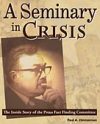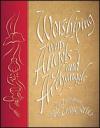Luke 13:1-9
Good Fruit
Grace,
mercy, and peace to you from God our Father, and from our Lord and Savior,
Jesus Christ, amen. The text for the
sermon this morning comes from the Gospel which was read earlier.
Back in Indiana, we have
something very special. Actually, we
have a whole lot of them. Some are good
and some aren’t so good. Some are big
and some are small. They come in all
shapes and sizes. What I’m talking about
are trees.
Jesus
begins His parable this morning saying, “A
man had a fig tree planted in his vineyard…” As He tells us the story, Jesus expects us to
understand that god is the one with the vineyard and you—the believer in
Jesus—are the fig tree in the vineyard of God’s grace. God planted you in His vineyard on the day of
your baptism, which St. Paul
describes as being “planted together in
the likeness of [Jesus’] death,” that we may be raised “in the likeness of his resurrection.”
God plants
with the expectation of a harvest. More
valuable than figs, the fruit God is looking for in the life of the Christian
is the fruit of repentance—the fruit that humbly acknowledges my own sinfulness
and asks God for forgiveness for no other reason than the Father’s love for us
through His Son, Jesus Christ.
Not every
plant bears fruit. There are many open
spots in the pews, spots which were occupied by someone whom God planted in His
vineyard. When did the vacancies in the
pews appear? Some just a week, some
months, some maybe even years. How many
have noticed? Did we fail these living
trees which God has planted in the likeness of Christ’s death in the hope that
they would share in the likeness of His resurrection? Did we do something to cause their fruit not
to grow? It is our hope that all bear
fruit, because as we see in today’s text, the tree of Jesus’ innocent death now
bears the fruit of life in all who believe.
You were
all planted in the soil of God’s vineyard, the Church. You were planted in God’s vineyard when you
were brought to the waters of Holy Baptism.
God planted you in His vineyard so that you might mature and grow and
bear fruit in His kingdom. That was the
plan anyways. However, it didn’t last
like that for long. Once Satan entered
the Garden, once Eve ate from the fruit, once Adam ate from the fruit, the
vineyard which God planted His children in, the fruit became tainted and
polluted. The vineyard became
unfruitful. It wasn’t the vineyard which
God had created. How would God restore
the vineyard to its fruitful state again?
God tried
to let nature take its course and right itself, but that didn’t work. God sent the flood to destroy all that God
had created, with the exception of Noah and his family, eight souls in
all. In order to make His vineyard
fruitful again, God sent His Son, our Savior, Jesus Christ, into the
world. It is through His life, death,
and resurrection that God’s vineyard has been restored.
We were
planted into God’s vineyard at our baptism, when the water with God’s Word,
touched our foreheads. As baptized
believers planted in the vineyard of God’s kingdom, we know that we have
received life and salvation from God because of Jesus Christ and His actions,
not because there is something that we have done.
Now that we
have the vineyard of God established, we must look at the fruit that the
vineyard yields. Sometimes the vineyard
produces fruit while sometimes it doesn’t produce fruit. And some of the fruit that the vineyard does
produce, it may not be good fruit.
Listen to the words of Jesus: “A
man had a fig tree planted in his vineyard, and he came seeking fruit on it and
found none. And he said to the
vinedresser, ‘Look, for three years now I have come seeking fruit on this fig
tree, and I find none.’”
Looking
good isn’t good the same as good fruit.
Just because fruit is in season and the tree looks mature, but sadly, there is no actual fruit on the tree! All too often we say in Christianity, people
who call themselves Christian, but in their life, there is nothing that reflects
Christ in their life. They are
hard-pressed to be seen in church. They
think that just by being a member of a church or calling themselves “Christian”
is all that they need to be saved. They
do exactly what Luther speaks against in the Third Commandment: “We should fear and love God so that we do
not despise preaching and His Word, but hold it sacred and gladly hear and
learn it.” We see the same thing
with the Jews who gathered around Jesus—even His own disciples—think that
giving up everything and following Him is good enough. However, Jesus says that they too, will
perish unless they repent.
That is the
message for us today. Repent. The message is so important that Jesus says
it twice in our text: “No, I tell you;
but unless you repent, you will all likewise perish.”
How are we
to repent? Have we really done that bad
that we need to repent? If we take stock
of ourselves I think we’ll often find that we’ve been careless at some point or
other in our lives—that we’ve lived as if God doesn’t matter, or allowed a
cynical attitude to develop, or conformed to the mood and mindset of the age in
which we live. In short, instead of
living our lives according to God’s commandments and His ways, we live our
lives in the way which makes us happy, regardless if it’s contrary to the Word
of God.
How do we
live then? The standard is too high, and
we don’t even measure up to the “not good enough” of which Paul and Ezekiel
speak of in our other readings. But God
is on your side and wants you to flourish!
Ezekiel writes, “I have no
pleasure in the death of the wicked, but that the wicked turn from his way and
live.” Jesus intervenes and
intercedes on your behalf. Through the Law, Jesus digs down to your
roots and exposes your sin. Through the
Gospel of forgiveness, in all of its forms: verbal, written, spoken, poured
out, eaten and drank – Jesus provides spiritual growth and enables you to bear
the fruit of repentance.
Golgotha’s dead tree bears the only life-giving fruit
that is able to save you from being cut down.
Baptism alone will not save you if you refuse that precious means by
which God intends to keep you alive, His Word and His Sacraments. That goes back to just calling yourself a
Christian and not doing anything to strengthen that faith. If you don’t come to hear the Word of God,
how will you know what it is that Jesus has done for you? How will you be able to safeguard yourself
against the attacks of the evil one? If
you do not receive Christ’s body and blood, then you will have nothing to strengthen
your faith. Try as we might, we cannot
do it on our own. Try as we might, we
are only a fig tree that bears no fruit.
Today and
everyday, God provides everything needed for your escape from the burn pile
outside the vineyard. Escape from sin
and evil in this life through participation in the communion of saints,
regularly receiving God’s saving Word and Sacraments. Escape from eternal judgment, delivering you
instead into the eternal joys of life everlasting through the forgiveness and
new life of righteousness offered in these same means of grace.
Jesus
Himself does everything possible so that baptized believers like you and I may
bear the fruit of repentance and live.
Jesus gets His hands dirty; He digs down beneath the topsoil and exposes
the root of your sin. Proclaiming the
Law through the Scriptures and from the pulpit, Jesus lays bare your innermost
soul so that He may apply the divine potting soil of the Gospel: His Word of
life that alone is able to produce fruit acceptable to God.
Sadly, some
Christians may eventually leave an empty space in the pew. But for those who remain in Jesus’ gift of
Word and Sacrament, bearing the fruit of humble repentance that trusts in Jesus
alone for salvation, for you Jesus has made the way of escape from the sin and
evil of this life, “and by his glorious resurrection opened to us the way of
everlasting life.” In Jesus’ name, amen.
Now the
peace of God which passes all understanding, keep your hearts and minds in true
faith, until life everlasting. Amen.





